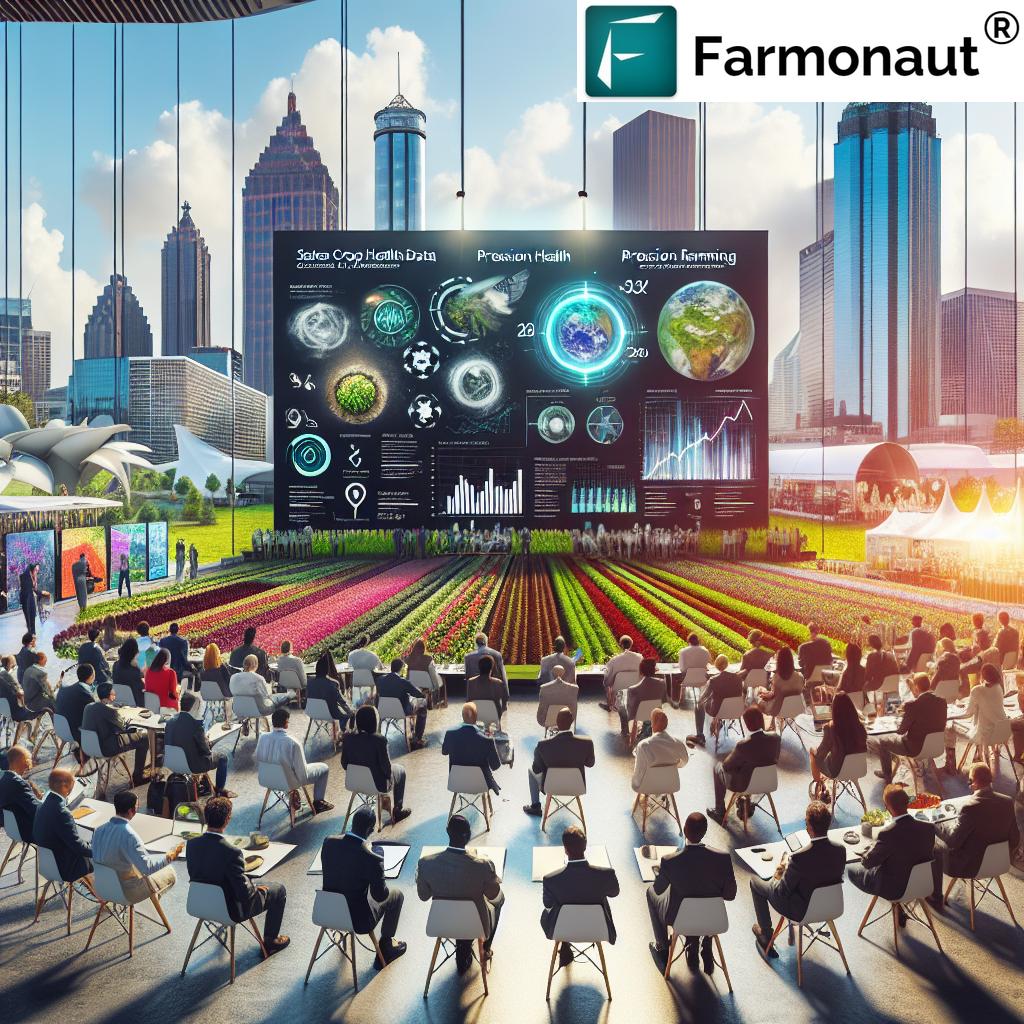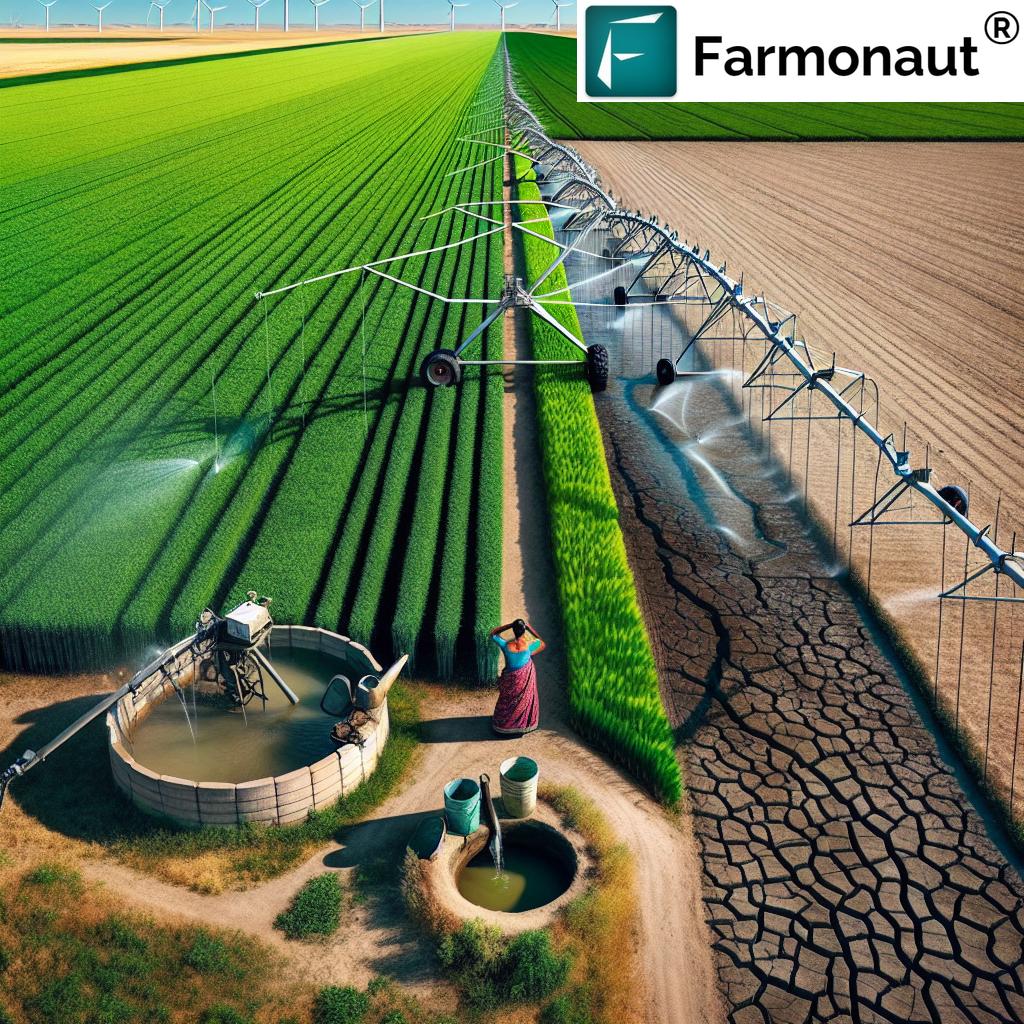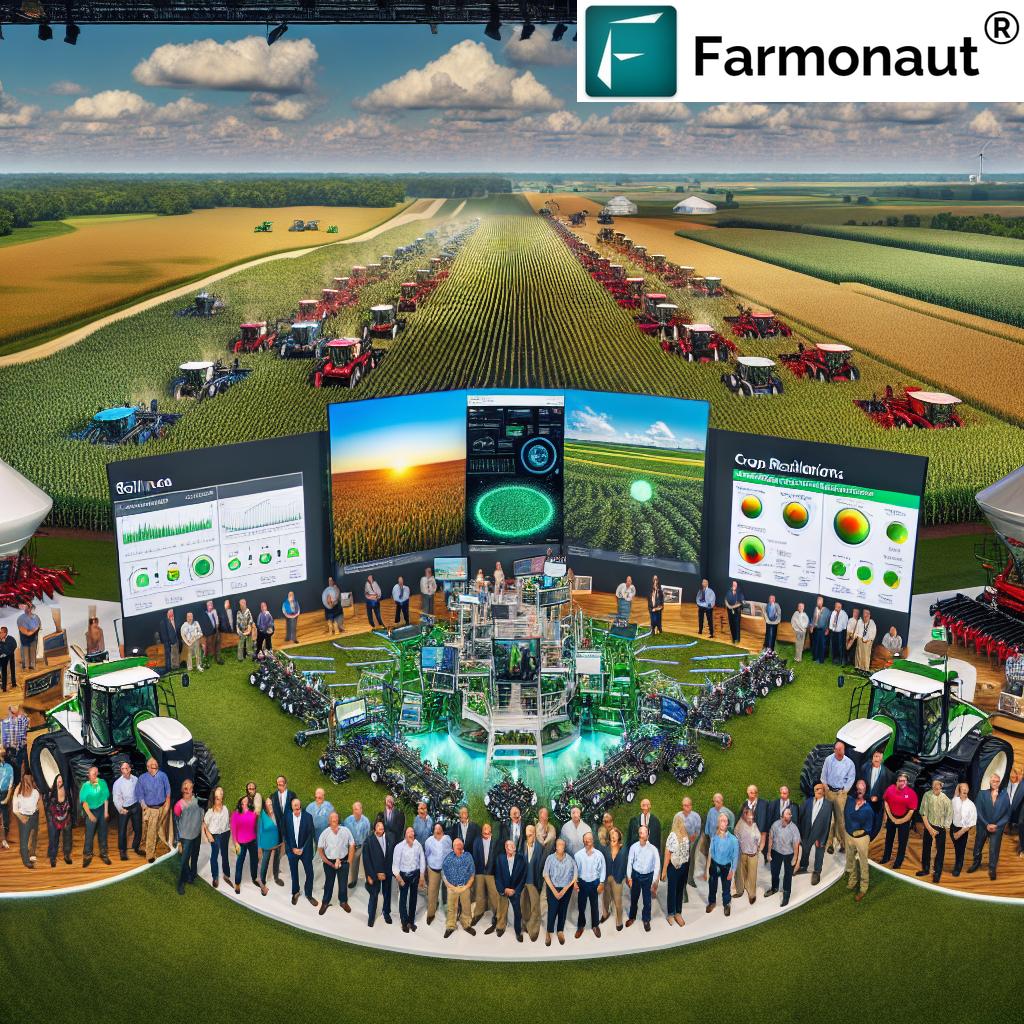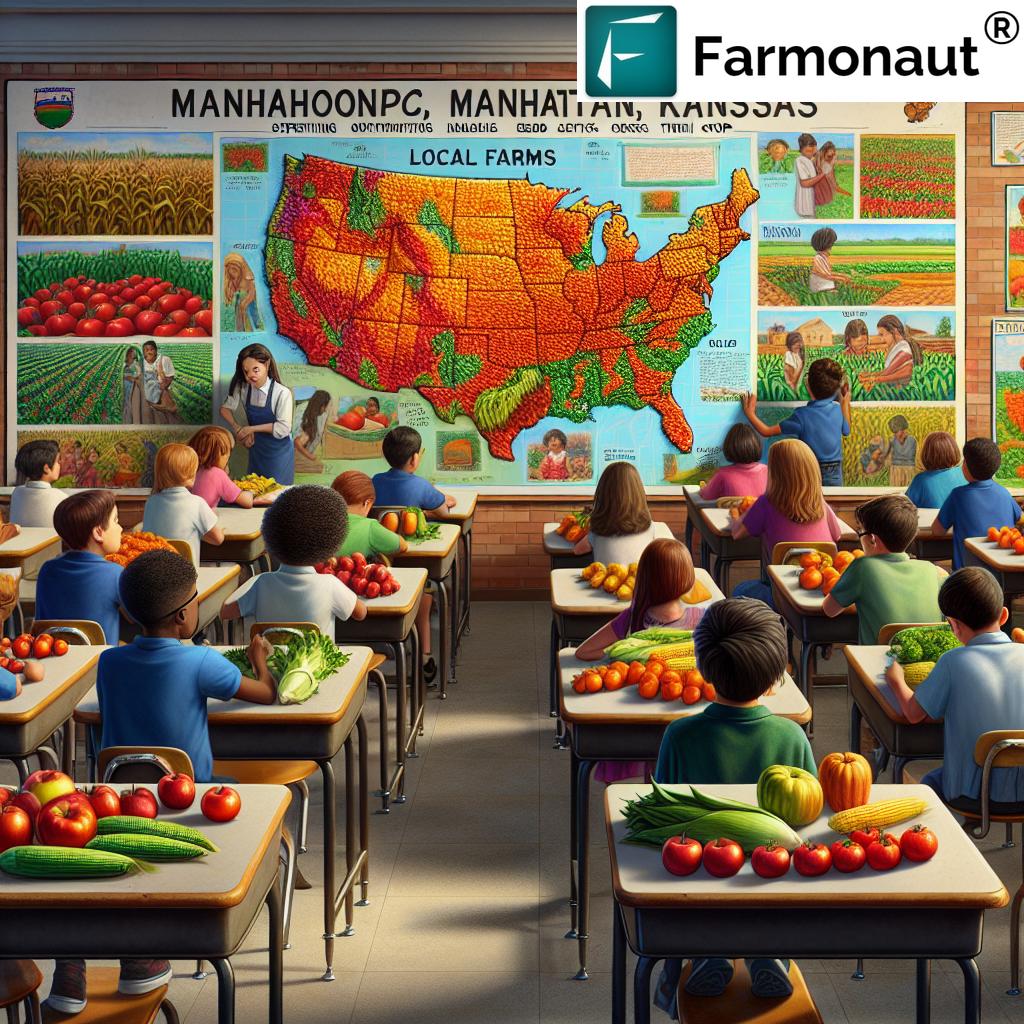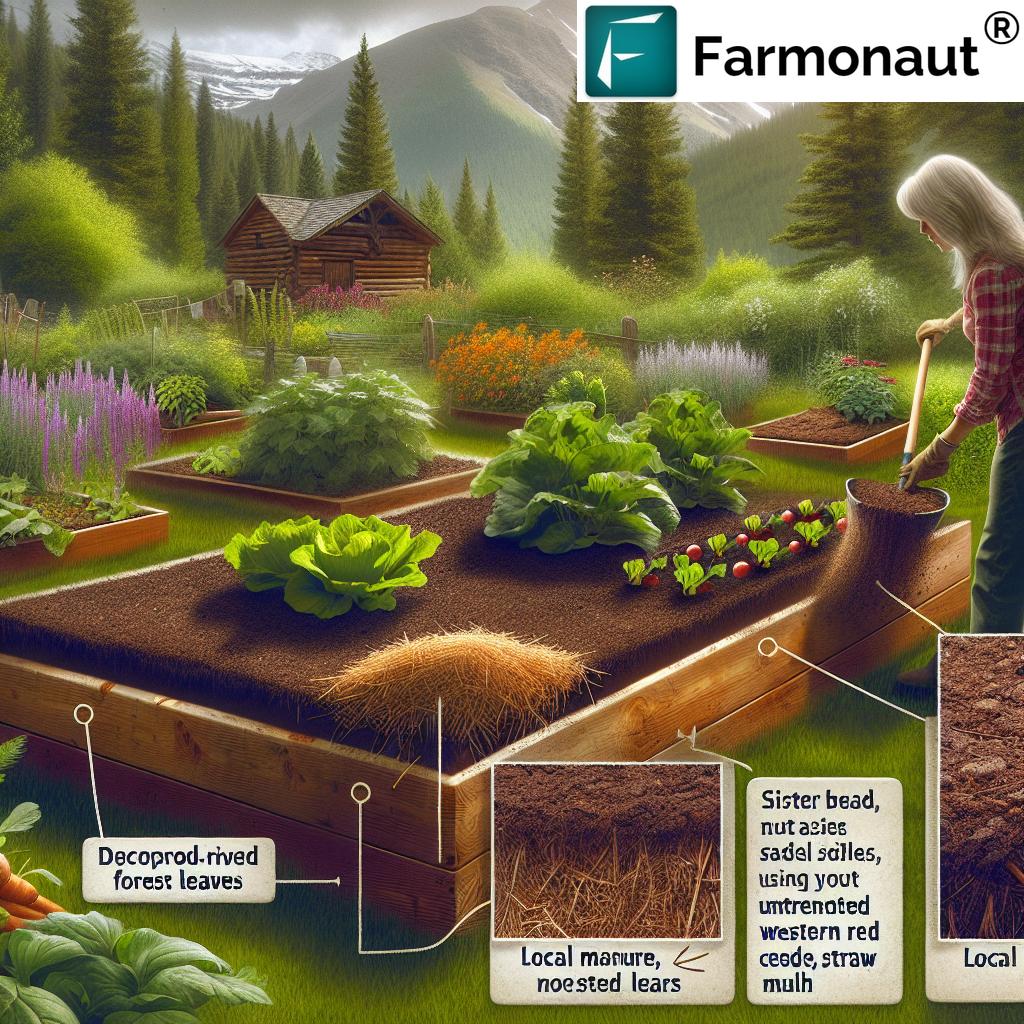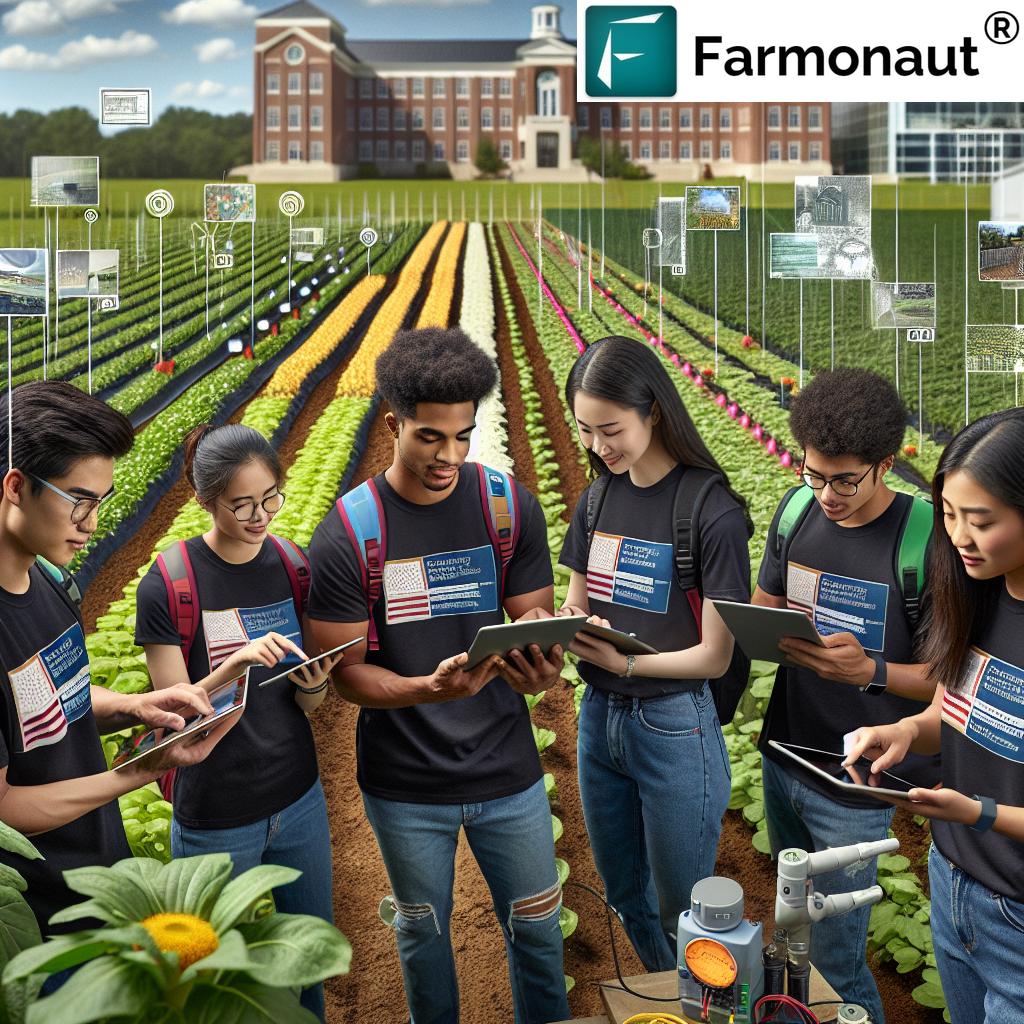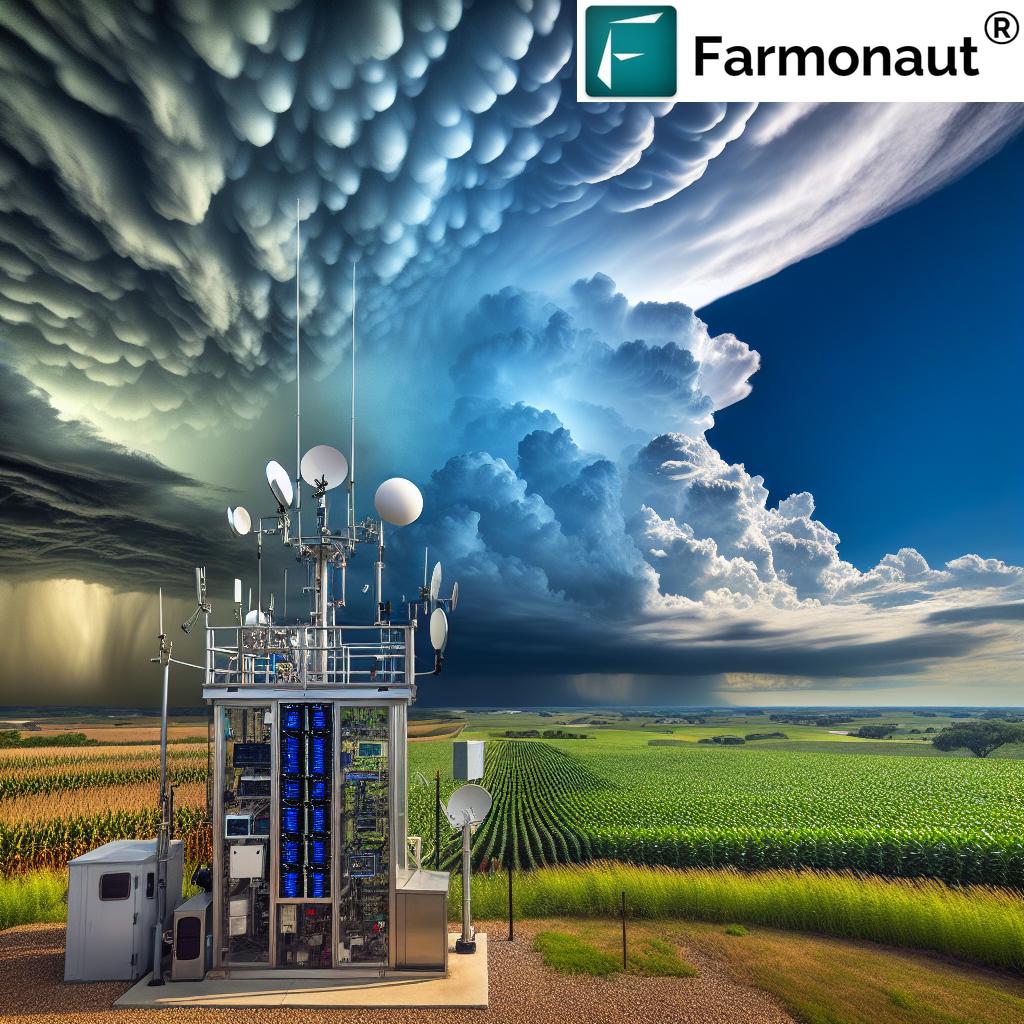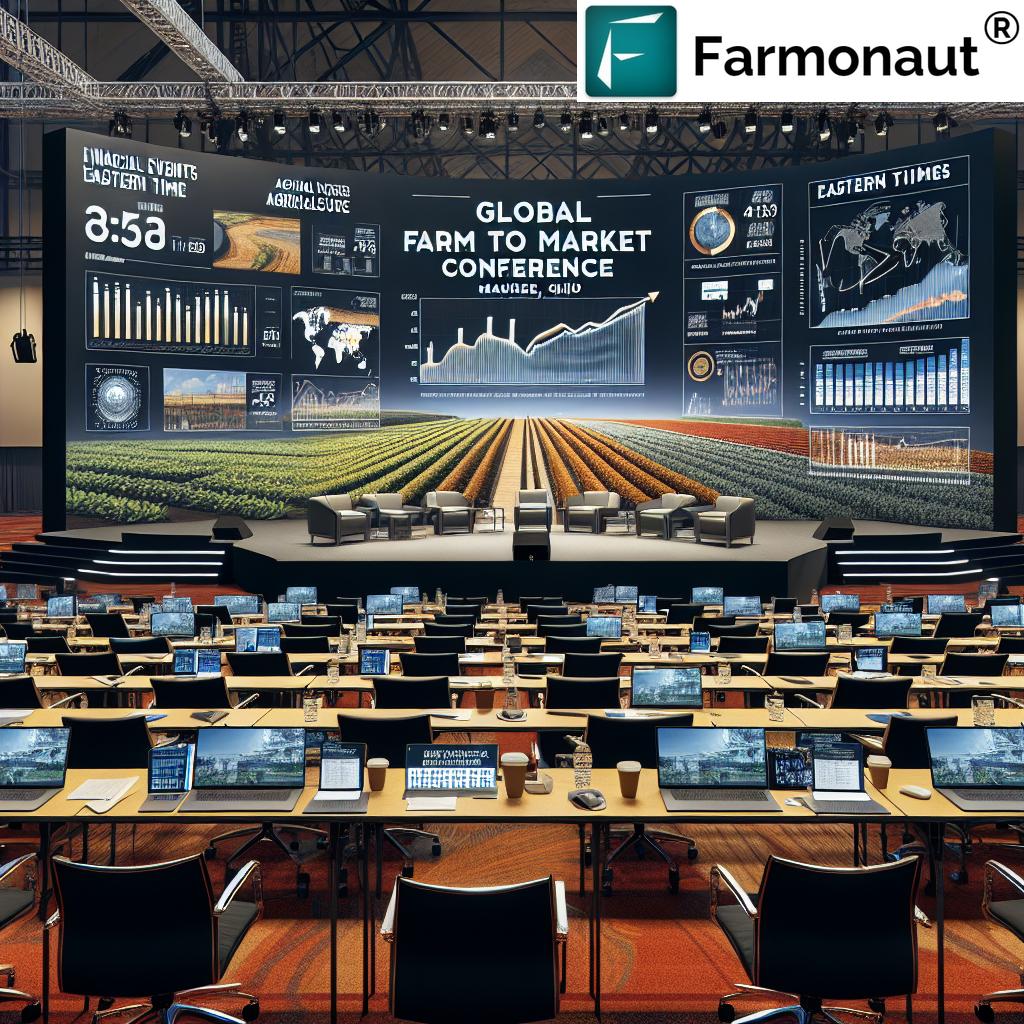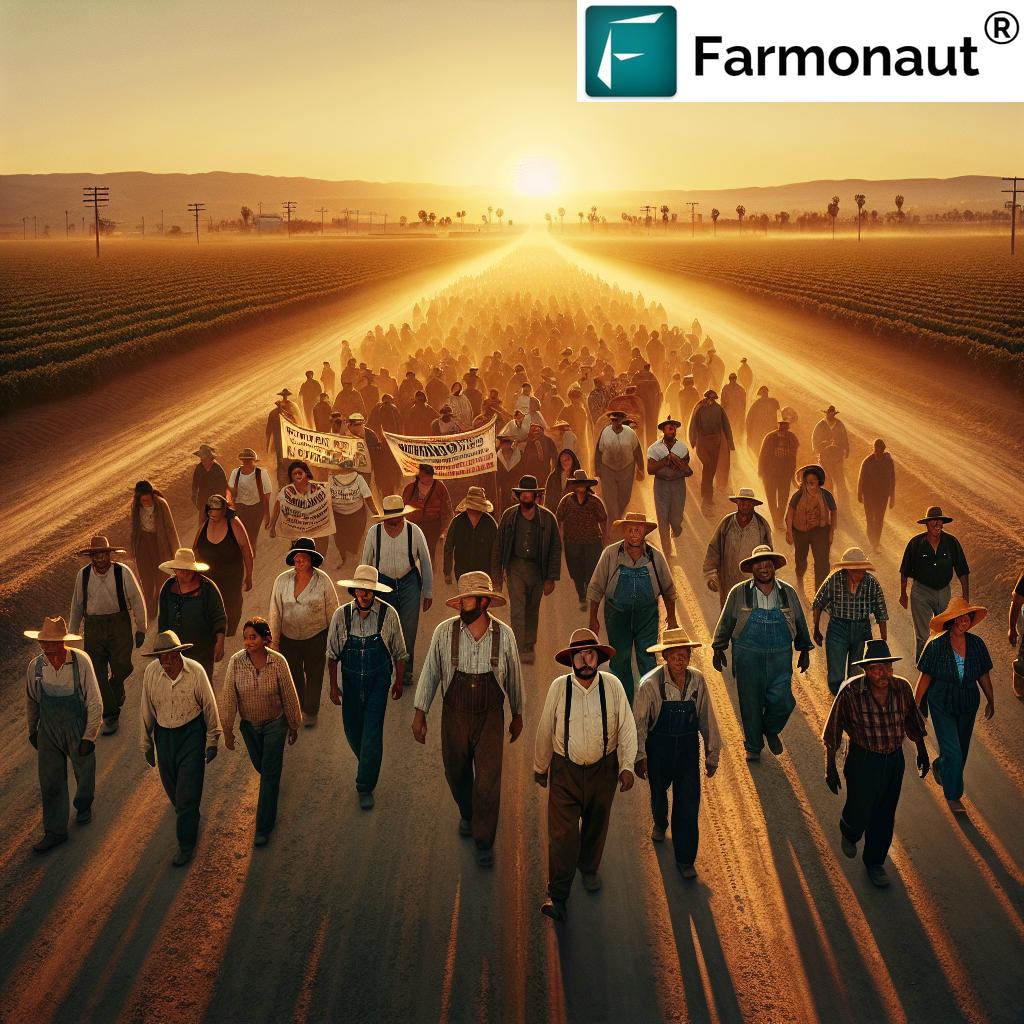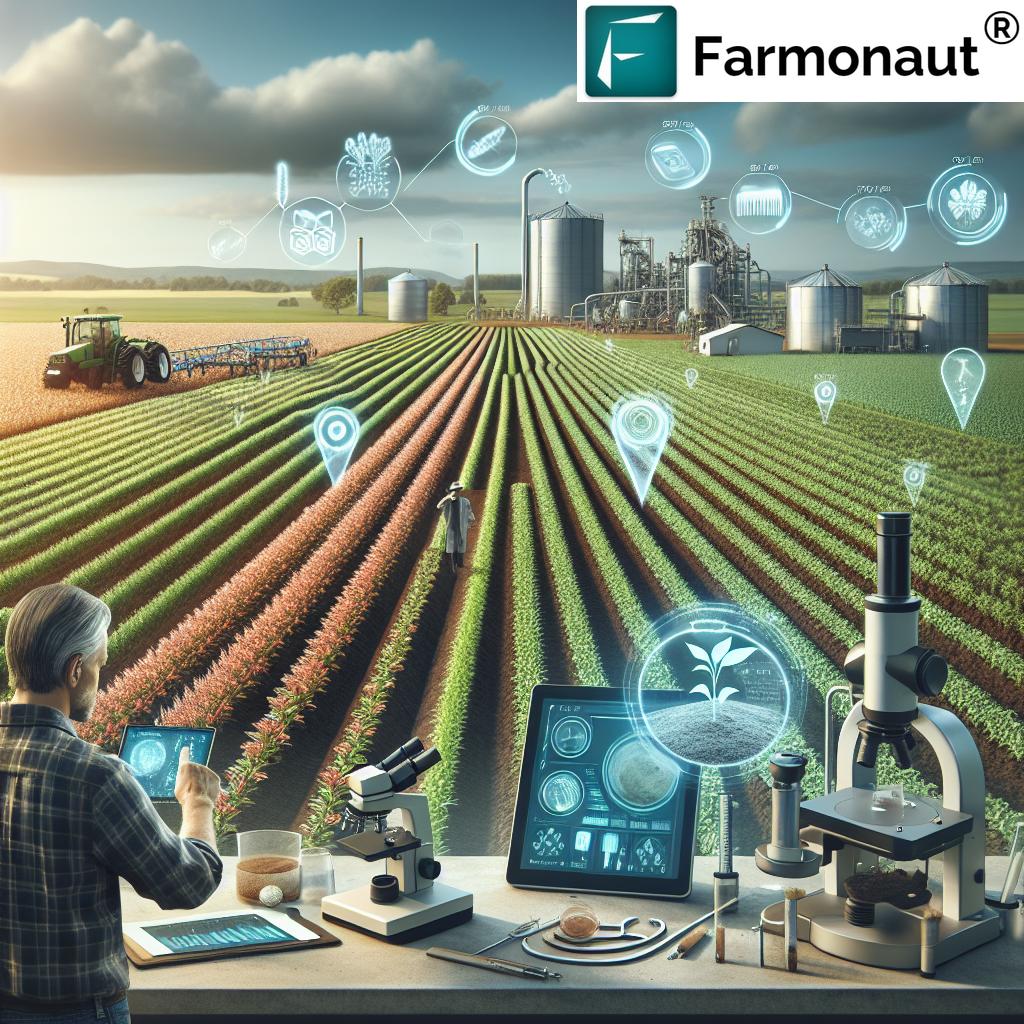Table of Contents
- Introduction: Chicago Agriculture & AI in 2025
- Trivia: AI’s Impact on Urban Farm Yields
- The Evolution of Chicago Agriculture
- Urban Farming and the Rise of AI in Chicago
- AI Integration: Transforming Chicago Agriculture
- Comparison Table: AI vs. Traditional Farming in Chicago (2025 Estimates)
- Satellite & AI: Powering Chicago Agriculture’s Data Revolution
- Trivia: AI Adoption Rates in Chicago Urban Farms
- Challenges and Opportunities for AI in Chicago Agriculture
- Enhancing Local Food Security and Sustainability
- Farmonaut: Advanced Tools for Chicago AI in Agriculture
- Looking Towards the Future: A Resilient and Sustainable Chicago
- FAQ: Chicago AI in Agriculture & Urban Farming
Chicago Agriculture: AI Revolutionizes Urban Farming
Summary: Chicago Agriculture in 2025: Embracing AI for a Sustainable Farming Future
Chicago agriculture—long an essential component of the city’s economy and regional identity—is undergoing a dynamic transformation. As we step into 2025, the convergence of artificial intelligence (AI) technologies with urban and regional farming traditions is reshaping how agriculture operates in this vibrant metropolitan area. This evolution holds real promise for increased sustainability, greater productivity, and enhanced local food security—not just for Chicago city dwellers but for the broader midwestern region as well.
“By 2025, AI-driven systems are projected to increase Chicago’s urban farm yields by up to 30%.”
The Evolution of Chicago Agriculture
Chicago agriculture has evolved over centuries, moving from vast, expansive farmlands that supplied a growing city and its hinterlands to a diverse blend of urban, peri-urban, and rural farming supporting both local food systems and the broader Midwestern agricultural output.
- Historically defined by corn, soybeans, vegetables, and specialty crops, Chicago’s agriculture has formed an essential part of the city’s economic backbone—primarily concentrated in surrounding metropolitan areas where large-scale farming remains vital.
- Today, with the city’s footprint having expanded significantly, agriculture also encompasses thriving urban farming movements. These include:
- Community gardens scattered across neighborhoods
- Innovative vertical farming facilities
- Rooftop greenhouses atop commercial and residential buildings
- This micro-scale farming reduces transport costs and environmental impacts, providing fresh produce directly to Chicago’s urban residents.
In recent years, Chicago agriculture’s identity has been further redefined by its embrace of sustainable farming traditions within a dynamic, technology-forward context—paving the way for 2025’s AI-powered revolution in local food production.
Key Crops & Consumption Patterns
- Primary crops: Corn, soybeans, leafy greens, tomatoes, microgreens, and specialty vegetables.
- Consumption: A significant proportion of the region’s output is consumed by Chicagoans and distributed through robust regional supply chains, highlighting the essential role of agriculture in the urban fabric.
- Sustainability highlights: Urban and conventional farms alike focus on soil health, water conservation, and the reduction of environmental impacts amid evolving climate challenges.
Urban Farming and the Rise of AI in Chicago
Urban farming in Chicago has emerged as a complementary movement to traditional agriculture, further invigorated by young entrepreneurs, community organizations, and food activists determined to reduce environmental costs and improve food security in the city. In these innovative settings, artificial intelligence finds immediate application—accelerating the drive towards sustainable, profitable, and community-centered agriculture.
- **Community gardens** promote social cohesion and food access—now enhanced by AI-driven soil, moisture, and crop monitoring.
- **Vertical and rooftop farms** use precision environmental controls, optimizing growth with AI-integrated sensors and climate systems.
- **Regionally**, the adoption of AI in peri-urban farms bridges Chicago’s urban core with its rich agricultural surroundings.
As these trends converge, chicago ai in agriculture signals a new era—where tradition meets cutting-edge innovation, and every Chicagoan has the opportunity to participate in a vibrant, sustainable food future.
AI Integration: Transforming Chicago Agriculture
2025 marks a pivotal point in chicago agriculture as AI-powered technologies become fully embedded across various farming operations. This section explores how these advances are reshaping the landscape for farmers, community stakeholders, and local businesses:
Precision Agriculture: Real-Time Data & Smart Application
**Precision agriculture** is fundamentally changing farming in chicago. AI algorithms, powered by satellite imagery, drones, remote IoT sensors, and robust data analysis, empower farmers to evaluate soil health, moisture levels, nutrient content, and crop requirements in real time. Here’s how these systems work:
- Soil Analysis: Sensors and satellite data evaluate soil quality and determine precise nutrient requirements, informing optimal timing and location for fertilizer applications.
- Moisture Monitoring: Smart irrigation systems adapt to real-time moisture data, reducing water usage and ensuring crops receive what they need without waste.
- Pest and Disease Management: Automated AI systems scan crops for signs of pest activity or disease, enabling targeted response instead of broad pesticide use. This decreases environmental costs while protecting yields.
- Yield Prediction: With machine learning, historical and current data predict the yields at plot, farm, or regional scale, helping farmers and businesses plan and allocate resources more efficiently.
Predictive Analytics & Climate Resilience in Chicago Agriculture
AI’s power to analyze millions of data points brings game-changing predictability to chicago agriculture.
- Weather Forecasting: AI models use historical and satellite data to anticipate weather extremes, arming farmers with timely alerts for frost, drought, hail, or flooding.
- Pest and Disease Prediction: Machine learning evaluates current conditions and detects potential outbreaks of pests or crop diseases, enabling preventive action before problems escalate.
- Resource Optimization: Data-driven models optimize water usage, nutrient inputs, and energy consumption, supporting Chicago’s goal of a resilient, sustainable food system.
For farmers, this means increased productivity and reduced risk; for the city, it ensures stronger food security even amid climate uncertainties.
Automation and Robotics on Chicago Farms in 2025
Chicago farmers, both urban and peri-urban, are increasingly deploying **automated machinery** powered by AI:
- Driverless Tractors & Planters: GPS-enabled and AI-driven, these machines plant in straight lines, reduce overlap, and maximize resource efficiency.
- Robotic Harvesters: Automated pickers ensure that vegetables and specialty crops are harvested at peak quality and minimal labor cost, enhancing productivity and profitability.
- Greenhouse Robots: AI-controlled robots monitor climate parameters and execute precise plant care routines in vertical farms and rooftop greenhouses.
The result is a dramatic reduction in labor costs and human error—making chicago farming more resilient amid workforce challenges and competitive pressures.
Supply Chain Optimization in the Chicago Metropolitan Area
Chicago’s unique geography—at the heart of America’s transportation network—makes it a major hub for regional agricultural supply chains. In 2025:
- AI-driven logistics networks crate faster, more reliable delivery of produce from farms to local grocers and restaurants.
- Blockchain-based traceability solutions ensure authentic, transparent supply chains, combatting fraud and ensuring that Chicagoans trust what’s on their tables.
- Fleet management AI reduces transport costs, helps schedule optimal delivery times, and minimizes food spoilage.
This **optimization enhances Chicago’s reputation** as a city where fresh, sustainable food is always within reach, thus strengthening food security in the metropolitan area.
Comparison Table: AI Solutions vs. Traditional Farming in Chicago (2025 Estimates)
| Farming Aspect | Traditional Method (2025 Estimate) |
AI-Enhanced Method (2025 Estimate) |
% Improvement |
|---|---|---|---|
| Crop Yield per Acre | 20 tons (vegetables) | 26 tons (vegetables) | +30% |
| Water Usage | 3500 gallons/acre/season | 2100 gallons/acre/season | -40% |
| Labor Cost | $2,500/acre/season | $1,400/acre/season | -44% |
| Resource Efficiency (fertilizer/pesticide use) |
100% (baseline input) | 65% (input reduction) | -35% |
| Food Security Index | Baseline (conventional) | High (real-time supply/demand matching) | Substantial |
Table: Comparison of yield, water use, labor costs, resource efficiency, and food security between traditional and AI-powered urban farming in Chicago (2025 estimates).
Satellite & AI: Powering Chicago Agriculture’s Data Revolution
The integration of satellite technology and AI systems further accelerates the transformation of farming in Chicago. As 2025 approaches, satellite-based data is indispensable for real-time crop monitoring, environmental impact assessment, and smart resource management:
- Satellite-driven multispectral imagery reveals detailed insights into soil moisture, vegetation health, and crop development across both small urban farms and expansive regional farmlands.
- AI-based advisory systems deliver personalized recommendations to help farmers meet environmental, economic, and operational goals.
- Blockchain and traceability ensure that Chicago’s locally-grown produce is transparent and trustworthy for consumers throughout the supply chain.
With such innovations, the combination of chicago ai in agriculture and satellite-driven insights positions the city as a leader in urban farming’s technological future.
Use Farmonaut’s mobile and web apps for real-time monitoring, smart advisory, and easy access to data-driven tools—empowering chicago farming towards a sustainable future.
Developers building custom AI or data solutions for chicago agriculture can integrate Farmonaut’s powerful API. Explore integration details through the developer documentation to bring satellite-powered intelligence into your agri solutions.
“Over 60% of Chicago’s urban farms plan to adopt AI-powered crop monitoring by 2025.”
Challenges and Opportunities for AI in Chicago Agriculture
While the adoption of AI technologies in chicago agriculture unlocks immense benefits, multiple challenges and opportunities are shaping the field:
Key Challenges
- Initial Costs: The investment needed for AI systems, precision sensors, automated machinery, or even satellite subscriptions can be high, especially for small or community-based urban farms.
- Digital Divide: Access to technology and reliable internet varies across communities, risking inequality between advanced and under-resourced neighborhoods.
- Data Privacy & Security: Handling sensitive farm and environmental data necessitates robust cyber-protections and transparent data governance frameworks.
- Learning Curve: Training Chicago’s diverse farmer population to make effective use of AI systems takes ongoing investment in education and support networks.
- Integration with Urban Policy: Aligning urban farming innovation with city planning, zoning, and food system policies remains essential for widespread adoption and impact.
Growth Opportunities
- Innovation Hubs: Chicago’s ecosystem of universities, agri-tech startups, and research labs is one of the most vibrant in the US, accelerating technology transfer and local adaptation.
- Economic Resilience: AI-driven optimization boosts farm productivity and profitability, helping agriculture remain a strong component of the city and regional economy.
- Environmental Wins: Less pesticide and water use, combined with reduced transport emissions from hyperlocal production, support Chicago’s sustainability and climate goals.
- Community Empowerment: Digital tools can amplify the voices, skills, and outcomes of Chicago’s most committed food justice and urban agriculture advocates.
Tackling these challenges and seizing emerging opportunities will demand collaborative effort from policymakers, civic leaders, agri-tech companies, non-profits, and farming communities across Chicago.
Enhancing Local Food Security & Urban Sustainability
The transformative capabilities of chicago ai in agriculture extend not only to increased farm productivity but to the foundation of food security for communities across the metropolitan area:
- Reduced Food Desert Risk: Urban and vertical farms enabled by AI are strategically located to serve neighborhoods with limited fresh food access, shrinking disparities and promoting health equity.
- Hyper-local, Consistent Supply: Real-time crop and demand monitoring ensures local stores and restaurants can source fresh, sustainable produce year-round.
- Environmental Benefits: AI-guided resource management reduces emissions, water use, and chemical runoff, supporting the city’s resilience in the face of climate uncertainties.
- Adaptive Systems: Weather, market fluctuations, and pest outbreaks are managed proactively, providing a robust safety net for supply chains and food system resilience.
By 2025, chicago ai in agriculture stands as a model of how a major urban region can embrace the future through technology—strengthening both the city economy and the health and wellness of its people.
Farmonaut: Advanced Tools for Chicago AI in Agriculture
At Farmonaut, we are committed to delivering affordable, accessible, and advanced satellite-based AI solutions tailored for chicago agriculture in 2025 and beyond. Our solutions empower farmers, businesses, and governments to monitor fields, manage resources, and drive innovation—no matter the scale.
- Real-Time Monitoring: Our platform harnesses satellite imagery and AI to monitor large-scale urban and peri-urban farm health, detect stress, and provide actionable insights—boosting productivity while minimizing costs.
- AI-Based Advisory: We deliver custom, AI-driven recommendations for soil, water, and crop management, helping both new and experienced farmers achieve optimal yields and sustainability goals.
- Blockchain Traceability: Our traceability solution leverages blockchain to ensure transparent, trustworthy supply chains—protecting the integrity of Chicago’s produce markets from field to fork.
- Fleet & Resource Optimization: We support logistics, vehicle optimization, and equipment tracking with our AI-powered fleet management tools, reducing operational costs for urban and peri-urban farms.
- Environmental Monitoring: Farmonaut enables robust carbon footprint assessment and regulatory compliance, aligning with Chicago’s sustainability and climate resilience strategies.
- Crop Loan and Insurance Support: We simplify access to credit and protection for farmers through satellite-verified crop insurance and loan solutions, reducing risk and fraud for farmers and financial institutions.
Our modular platform is delivered via web, Android, and iOS applications, as well as powerful APIs—making Farmonaut the data-driven ally for anyone embracing chicago ai in agriculture.
Choose Farmonaut to bring AI and satellite monitoring into your farming operations—unlocking tangible improvements in yield, cost efficiency, and long-term resilience.
Try Farmonaut’s Subscription Services for Chicago AI in Agriculture
Affordable pricing, scalable solutions: Whether you’re a solo grower, an urban agri-coop, or managing expansive peri-urban fields, our subscription tiers make it easy to start, grow, and scale your AI-powered agriculture journey.
Looking Towards the Future: A Resilient and Sustainable Chicago
As we move through 2025 and beyond, Chicago agriculture exemplifies how a major urban center can embrace transformative AI and satellite technologies for sustainable, resilient food production. The convergence of tradition with innovation positions the Chicago metropolitan area as a global model—where vibrant communities, fresh produce, and robust regional supply chains define a thriving future.
- AI-enhanced decision-making empowers urban and peri-urban farms to adapt quickly to changing climate, market, and resource conditions.
- Urban food systems become smarter, with Chicagoans enjoying more local, fresh, and diverse produce year-round.
- Environmental stewardship strengthens, as data-driven tools help reduce the city’s carbon footprint and promote sustainable land and water management.
- Food security and equity are supported, ensuring all communities benefit from technological advances in food production and distribution.
Every step in chicago ai in agriculture brings us closer to a resilient, sustainable, and equitable food system for the city, the midwestern region, and future generations.
FAQs: Chicago AI in Agriculture & Urban Farming
What is driving AI adoption in Chicago agriculture by 2025?
AI adoption is driven by growing needs for efficiency, sustainability, and food security. With urban farming on the rise, AI-powered monitoring and automation help overcome challenges like resource scarcity, labor shortages, and climate uncertainty.
How does AI improve crop yields and reduce costs for Chicago farmers?
AI systems leverage real-time data from satellites, IoT sensors, and drones to guide watering, fertilization, and pest management. This precision agriculture approach means fewer inputs are needed, saving money and boosting yields—often increasing output by up to 30%.
What crops benefit the most from AI in urban Chicago farming?
High-value, quick-turnover crops—such as leafy greens, tomatoes, and microgreens—benefit vastly from AI integration. Corn, soybeans, and specialty vegetables in regional farms are also optimized with AI-driven monitoring, irrigation, and pest control.
Is AI technology accessible to smaller community gardens and urban growers?
While initial costs can be a challenge, advances such as Farmonaut’s affordable, subscription-based satellite and AI services are making these technologies accessible for all scales of urban growers in Chicago.
How do AI and satellite data help promote environmental sustainability?
AI powers better resource efficiency—minimizing water and chemical use and reducing waste. Satellite monitoring enables precise, data-driven actions, aiding compliance with environmental guidelines and lowering agriculture’s carbon footprint in Chicago.
How will AI in agriculture change Chicago’s food landscape in the future?
As AI becomes the norm, Chicagoans can expect increased access to fresh, sustainable, locally-grown food, fewer food deserts, and a more resilient food supply chain amid climate and market changes.
Where can developers find satellite and AI agriculture APIs for the Chicago region?
Developers can access robust APIs and developer documentation from Farmonaut, making it easy to build, customize, and scale AI-driven agri solutions specific to the Chicago metropolitan area.





